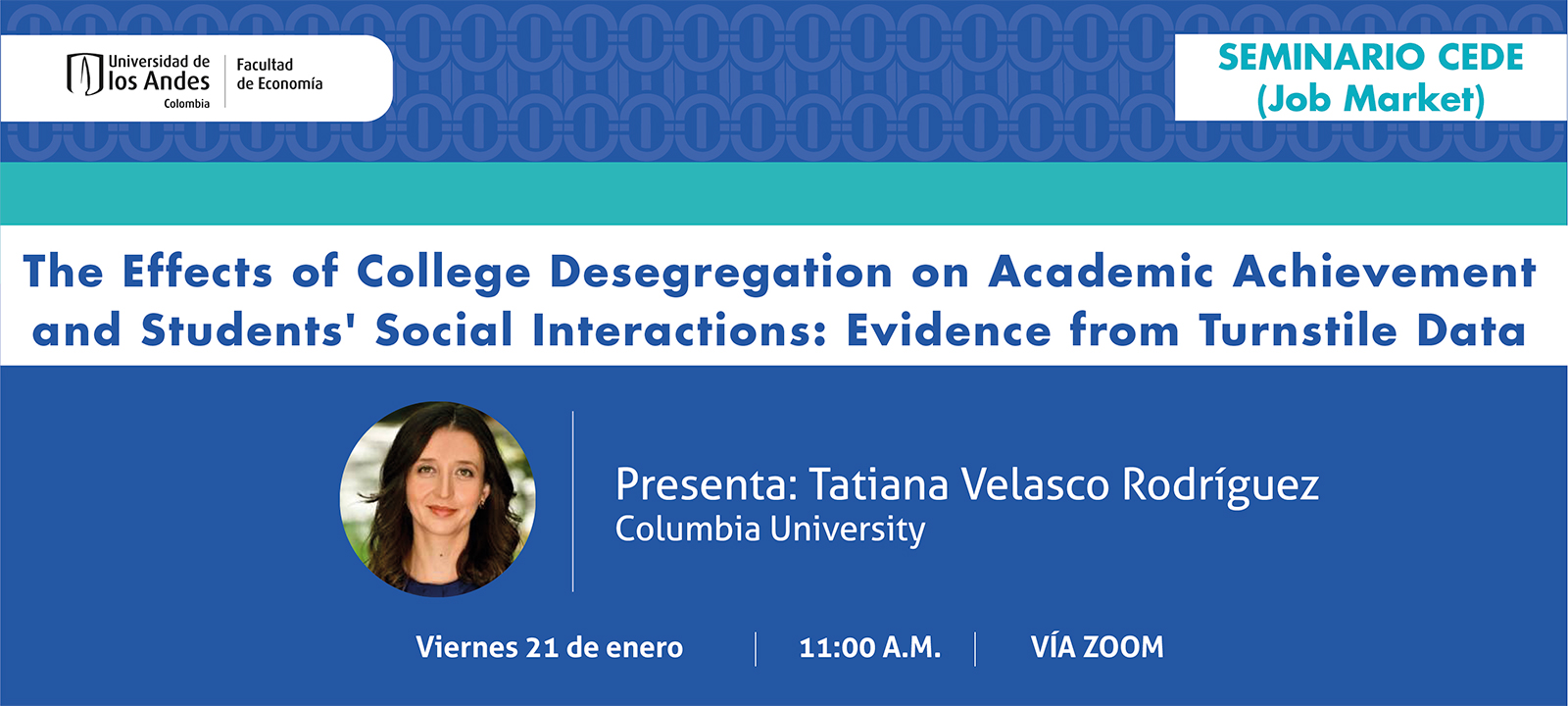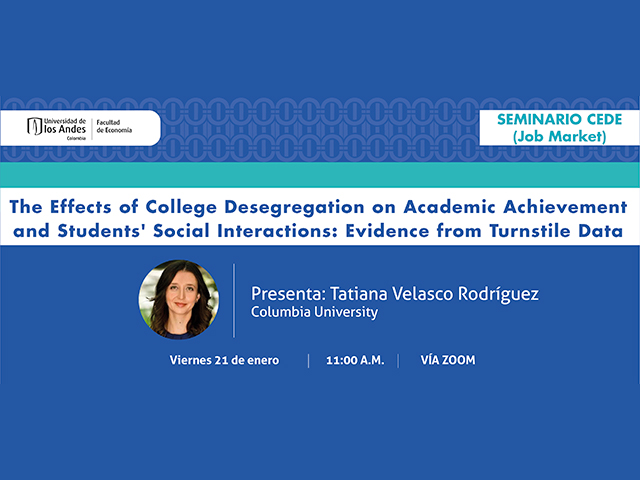Seminario CEDE - Tatiana Velasco Rodríguez

How does the desegregation of elite schools impact academic achievement? And does desegregation affect students' interactions with different types of peers within their school? In this paper, I study a natural experiment at an elite university in Colombia where the number of low-income students tripled as a result of the introduction of the financial aid program Ser Pilo Paga. The average increase in the percentage of low income peers -9.5 percentage points- had modest to null impacts on wealthy students' academic performance. I shed light on the mechanisms behind this lack of peer effects by studying changes in social interactions using data on students' co-movements across campus captured by turnstiles located at all entrances. Desegregation led to increased connections between wealthy and low-income students. At least half of the increase in interactions between wealthy and low-income students, however, is explained by interactions of wealthy students with low-income but high-achieving students. These results suggest students diversify their interactions primarily among students with similar academic achievement levels.

